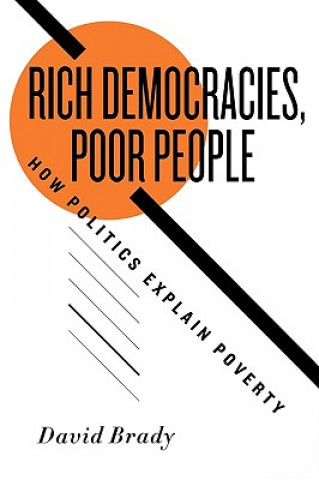
Livrare
Consilier de cumpărături





Nu se pretează? Nu contează! La noi puteți returna bunurile în 30 de zile
 Voucher cadou
orice valoare
Voucher cadou
orice valoare
Cu un voucher cadou nu veți da greș. În schimbul voucherului, destinatarul își poate alege orice din oferta noastră.
Rich Democracies, Poor People
 engleză
engleză
 397 b
397 b
30 de zile pentru retur bunuri
Ar putea de asemenea, să te intereseze


Poverty is not an individual's choice. Nor, as David Brady demonstrates, is it necessary. Building on the latest scholarship in poverty studies, this book points out that among affluent Western societies, there is immense cross-national and historical variation in poverty. Brady seeks to determine what makes poverty so entrenched in some affluent democracies whereas it is a solvable problem in others. He illustrates that, among these democracies, the United States is in the worst shape, with three times as much poverty as some West European countries. In the U.S., nearly 20% of the population is poor, as are almost a fourth of U.S. children and elderly. Searching for the causes of this dilemma, Brady puts forth a sweeping new theory to explain that the fundamental cause of poverty is politics, starting from the simple claim that the distribution of resources in states and markets is inherently political. Societies make collective choices about how to divide their resources, and these choices are institutionalized. Brady points out that where poverty is low, equality has been institutionalized, and where poverty is widespread, as most visibly demonstrated by the US, there has been a failure to institutionalize equality. Hence, it is a society that collectively decides how much of the population will be economically secure. Countries with a relatively low level of poverty in fact socialize the responsibility of preventing citizens from being poor. This book effectively tackles the issue of how this collective responsibility is conceived and institutionalized, by defining the mechanisms that shape this ideology, or prevent it from coming into being. David Brady offers promising new directions for understanding the politics of social equality, and takes an ambitious step forward in the struggle against poverty.
Informații despre carte
 engleză
engleză
Categorii




 Cum să cumpăr
Cum să cumpăr

























